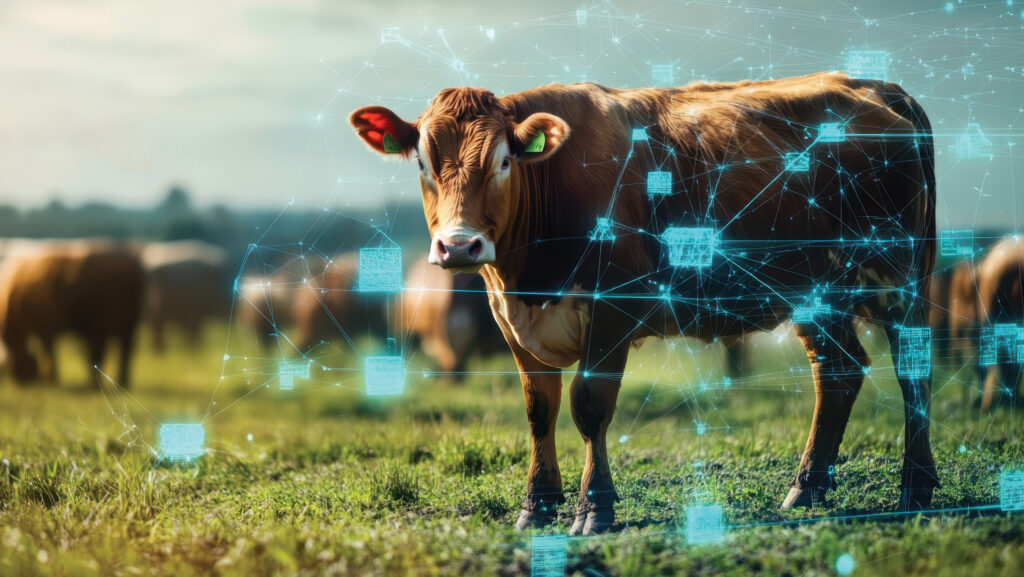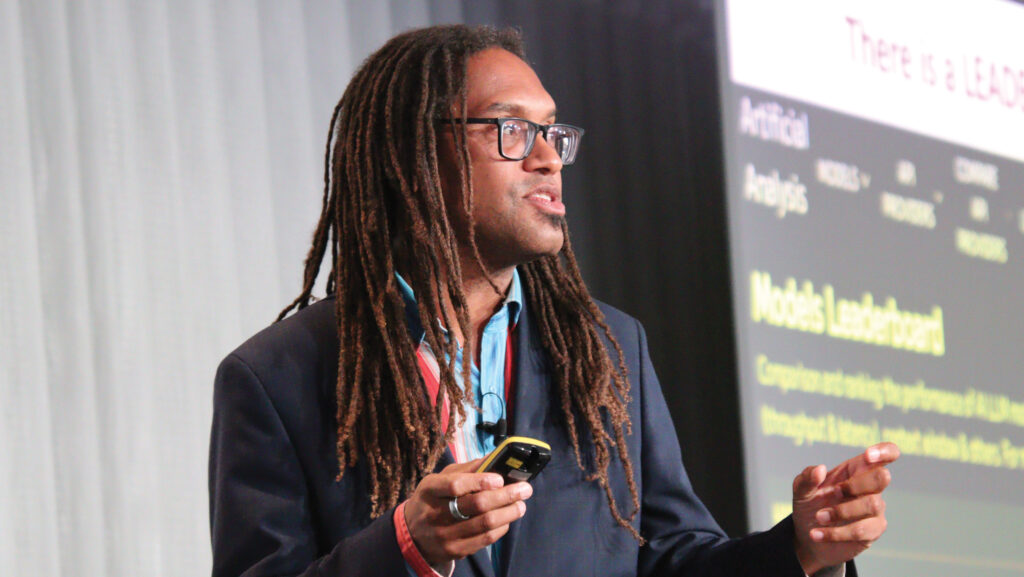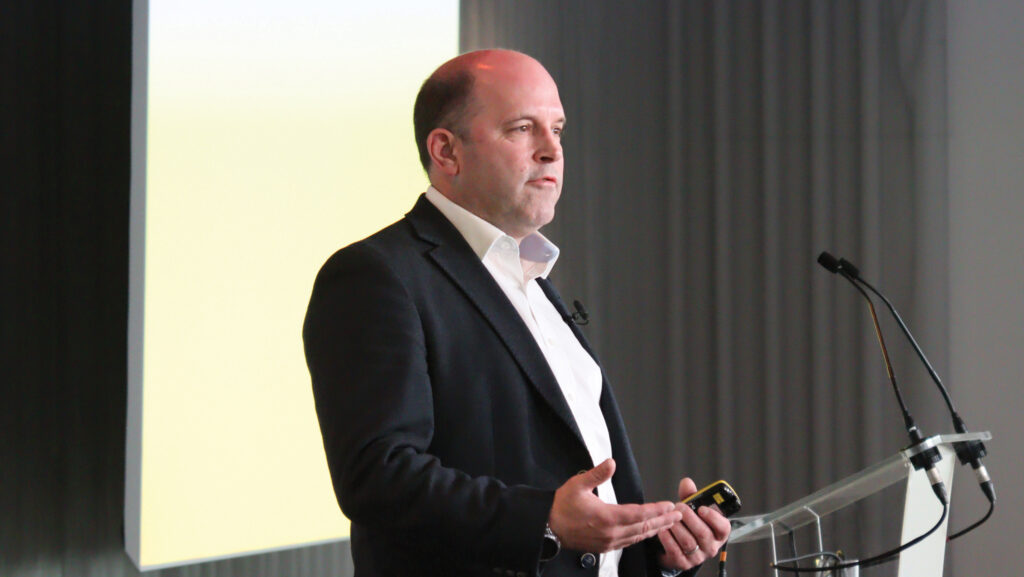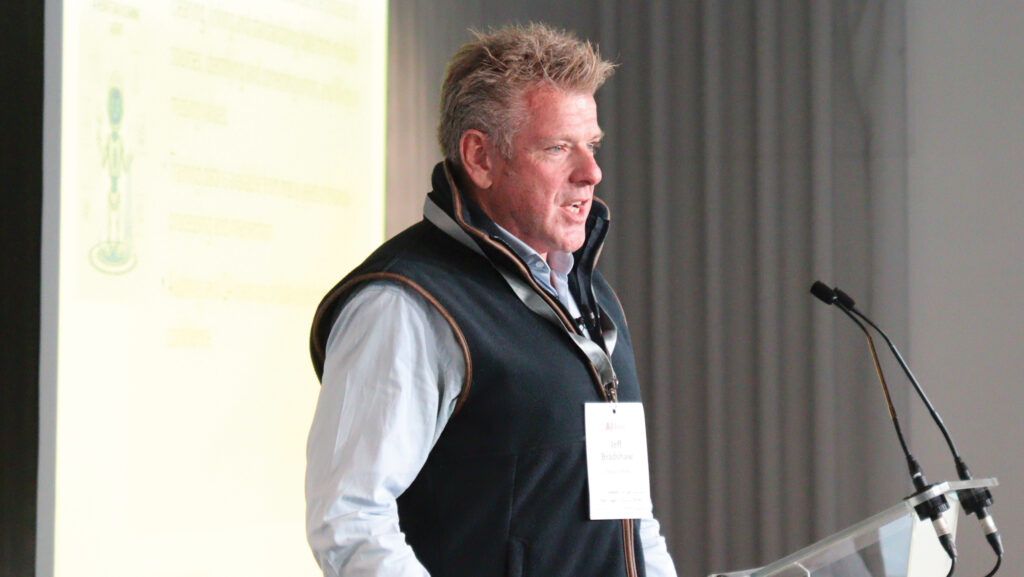Can livestock farmers survive without using artificial intelligence?
 © Adobe Stock
© Adobe Stock A combination of poor rural connectivity and a negative mindset threaten the development and uptake of artificial intelligence on livestock farms.
Yet data-driven decisions lead to economic resilience – with impact beyond the farm gate – and grow successful businesses.
This was the theme of AI(Live), the UK’s first conference devoted to artificial intelligence on livestock farms.
See also: How data management drives decision making for Romney flock
Issues surrounding this fast-evolving technology and its future in shaping livestock businesses were explored by panels of technology and artificial intelligence (AI) experts, vets and researchers.
It was termed the fifth industrial revolution by AI technology specialist Dan Sodergren, who questioned whether farmers could be without it.
“AI is the new electricity and will transform industry after industry,” he said.
But he declared it was everyone’s responsibility to ensure that broadband and affordable technology were available to all – and this meant that 4G and 5G were “essential” in rural areas.

Dan Sodergren © Phil Eades
It was a point echoed by vet and Liberal Democrat MP for Winchester, Danny Chambers.
“We need user-friendly and relevant data. Is AI for big, industrial units, or is the government serious about keeping smaller, family farms in business?” he said.
“We can’t [adopt technology] without rural connectivity – it’s as vital infrastructure as roads and bridges. Government has to make sure the entire farming industry can make use of it.”
Mindset and motivation
The potential benefits of AI were agreed to be far ranging – more effective environmental management; earlier disease detection; higher animal welfare; costs saved; better sustainability and traceability.
However, Dan was concerned that a farmer’s mindset might prevent them from using it.
He pointed out that the way someone thinks affects how they look at something new.
People with “growth” mindsets liked to be continually learning, whereas those with “fixed” mindsets were content with the status quo, he said.
“The question is not what AI can do, but what you can do with AI. You have got to be excited and motivated by it. Have an open mind and a growth mindset and think: what can this do for me?”
Dan also thought that AI was something that needed to work for the farmer, not “happen” to them, and it should amplify individual expertise – not standardise it.
AI’s ability with data, plus a farmer’s years of expertise, was an “unstoppable combination”. “Tech must serve the farm and farmer, not the other way round,” he said.
Barriers to uptake
Optifarm chief executive (and former poultry farmer) David Speller continued the theme of farmer mindset.
He said the limited uptake of technology by the livestock industry (though dairy farming was perceived as using more of it) is because livestock farmers are right-brain thinkers.
This means they make emotional decisions, not logical, black-and-white ones like left-brain thinkers.
“Livestock farmers make decisions that are not based on figures. But the technical world has to tap into your psyche and appeal to these customer emotions,” he said.

David Speller © Phil Eades
However, David suggested that AI could only help a livestock farmer who knows what their problems are.
“Tech ought to do the tasks we don’t want to, in other words: what do you hate doing? You need it to get you out of the office and onto the farm with your animals and staff.
“Find the real problems you want to solve, work out how much you are willing to spend on it, then look for your solutions.”
He also issued a warning: “Beware that some tech also creates fake news about your business. Use it for what it’s good for: data processing, not right-brain thinking. AI is still on a journey.”
Data quality crucial for decision making
Data-driven decisions on farm must be based on top-quality, clean data.
They are also crucial for artificial intelligence and machine learning, in addition to building prediction models, if they are to successfully help farm businesses.
This information came from Jasmeet Kaler, professor of epidemiology and precision livestock informatics at the University of Nottingham, who added that data must be unbiased and relevant.
Unfortunately, getting “sensible” data from all 170 companies producing sensors is a “big issue”, she said.
However, farm data are “not of a good enough quality”, according to Prof Simon Pearson, director of the Lincoln Institute for Agri-Food Technology.
He said that until the basic foundations of data quality and ownership are right “we won’t realise the potential of AI [artificial intelligence]”.
Simon also said that where there is uncertainty about data quality, users of AI will not trust the resulting analysis.
“People need training to develop their intuition of looking at the data generated to know if it’s true or not,” he cautioned.
Accuracy

Jeff Bradshaw © TBC
Jeff Bradshaw, of agricultural bank Oxbury Earth, confirmed that farmers are not good at data entry and this affects the bank’s ability to use AI. Data hygiene and “cleansing” are the “biggest hurdles” when trying to generate accurate data, he said.
The aim is to use AI to improve efficiency, reduce overheads, speed up workflow and use humans for “more useful stuff”. AI is important to the company, he said, to make sound business decisions.
“Once trained, AI is good at doing lots of repetitive stuff, but you have to re-train it and audit the data so that you can correct things.
“We use trained humans in the loop for correction [advice and monitoring].
“AI is a co-pilot and is there to help you do things faster – that’s what it is good at. It doesn’t replace human expertise,” he stressed.
Standards in AI are “really needed” through benchmarking AI against human operators, said Simon, although he thinks it too early for regulation.
Proposed EU law will stifle innovation in the AI industry. Instead, case law would be best: “AI is evolving so quickly that case law will regulate it, so watch the courts closely.”
Data security
Farmers using technology should own their data and agree what they would trade it for, whether that is for reciprocal data, cash or other services, said Optifarm chief executive David Speller.
Vet and Liberal Democrat MP for Winchester Danny Chambers expressed concern about people willingly giving away data on social media without thinking of the consequences, and how such an attitude will affect food and farming.
He pointed out that world governments can access data on a country’s food production, which give them “a lot of useful information”.
“Food security is national security, so we need to look at data discussion in context of farming issues as a whole,” he said, pointing out how the war in Ukraine had surprised the UK by its effects on fertiliser, fuel and food prices.
